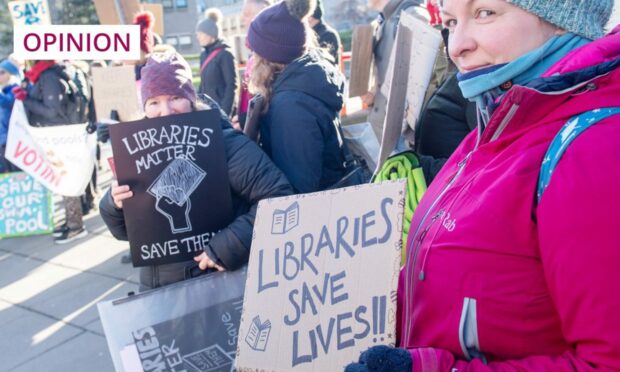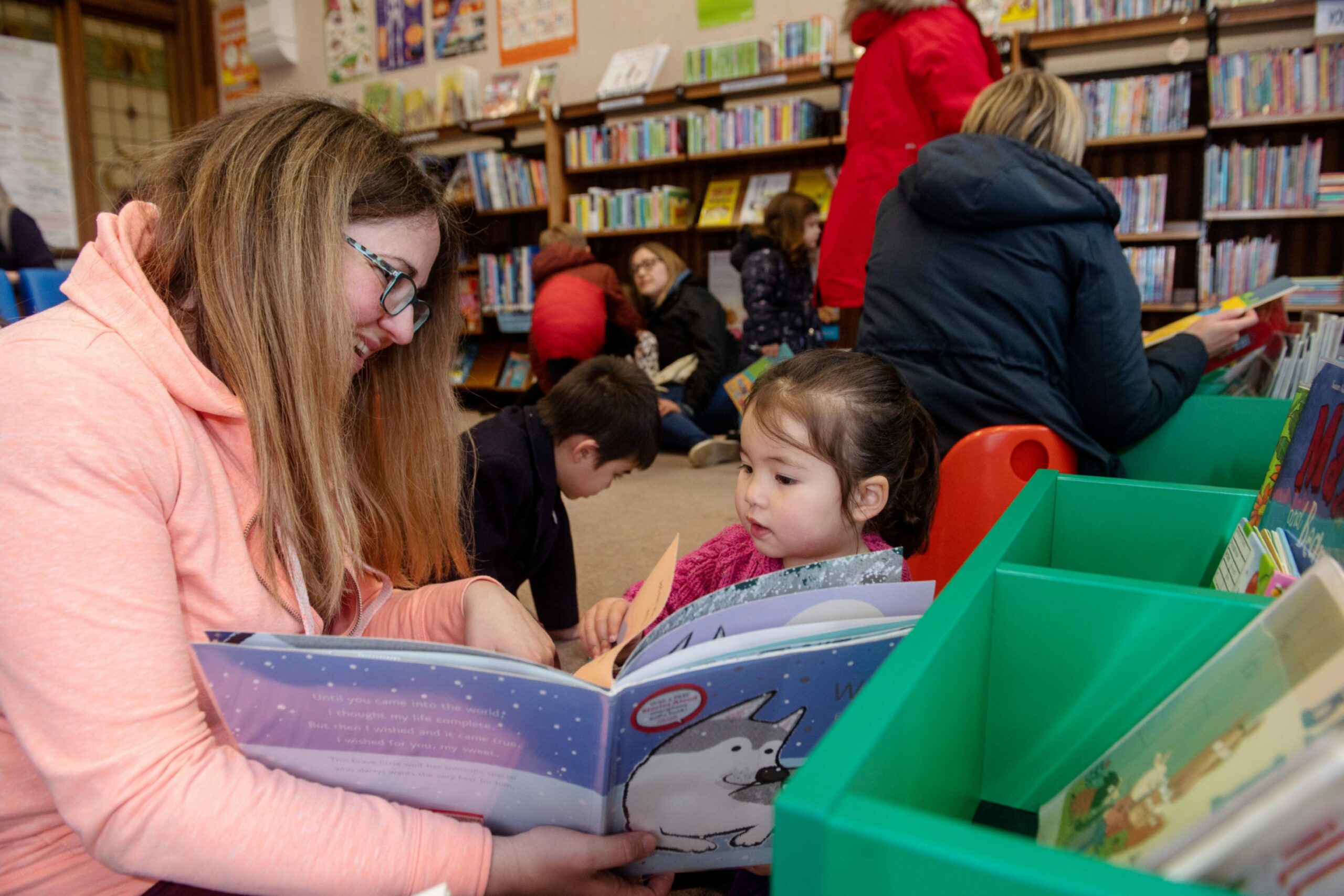I didn’t think politics could shock me anymore. Not since Boris Johnson and Donald Trump, a new political scandal every week, and Matt Hancock eating a camel’s penis in the jungle.
But, last week, someone sent me a video of an Aberdeen councillor, Hazel Cameron, talking about the planned closure of six Aberdeen libraries. In it, she says: “It is a building. A building will not teach your children to read. Could you be sociable somewhere else? I think you could. Could we do a Bookbug in here?” – meaning the council chambers – “That might be quite nice.”
I watched the recording of the councillor’s justifications for closing the libraries many times, trying to understand something that is, ultimately, unjustifiable. Libraries are not just buildings. They’re community hubs and resources. They are gateways out of deprivation. I know this because I have used them as such.
Aberdeen libraries and library books were my ladders from one of the hardest situations you can imagine for a deprived, care-experienced child, to being a published, award-winning author and a columnist in the national press.

You might think I was a lucky fluke, but an international study found that people who left school at 15, as I did, but were surrounded by books as children become as literate, numerate and technologically apt in adulthood as university graduates who grew up with only a few books.
I understand that Hazel Cameron represents a particularly deprived ward. What struck me most, before and after learning this fact, was the absolute lack of insight she must have about the public she claims to serve.
Many people from difficult, marginalised backgrounds – the people who most need these services – do not want to go to an institutional building. They want to go somewhere that has been trusted in the community for decades, that is safe, free, warm and that they can visit without expectation or judgment.
And as for holding Bookbug sessions in council chambers – if you’ve ever seen a two-year-old hurricane let loose in any building, you would not want them in your place of work.
As one Twitter commenter said, Councillor Cameron may as well say hospitals are just buildings where they fix broken arms. Because, of course, having a building that’s designed and fit for purpose with the right staff and the right facilities is vital for any organisation to be functional.
A distinct lack of insight and foresight
While we’re talking lack of insight, I also remain astounded by the lack of foresight. If the bottom line is the most important thing here, then this short-term budgeting exercise will have grave longer term costs.
In 2022, poor mental health cost the Scottish economy £8.8 billion. I cannot believe that amount won’t be further increased by the loss of libraries, which are many people’s safe space, only contact with the world, and first port of call for information when they are struggling with all manner of things.
This is @AberdeenSNP’s Cllr Hazel Cameron who voted TWICE to shut down 6 libraries (2 in her own ward).
Over 2000 have signed the 2 petitions while protests continue against the closures!
She is not listening to her constituents‼️
This is what she has to say about libraries📚 pic.twitter.com/CxlO578jY7
— Deena Tissera (@deenatissera) March 28, 2023
Can it be argued that no one uses libraries anymore? Not according to the data, which shows that in-person visits have increased by 68% since the start of the pandemic, despite spending on libraries in Britain having fallen by 17%. It is clear that budget cuts are a managed erosion on a vital, much-needed and much-loved public service.
The last day of the historic Woodside Library was documented on Twitter by longtime library user and local academic, Hayden Lorimer. He captured the small moments that make a library so much more than a building: a librarian who used to work at five of the libraries to be closed, the local history shelf that feels like home to them, a primary school class and their teacher arriving with a petition against the closure, other children receiving chocolate eggs and lollies.
It’s not too late to save libraries
Councillor Hazel Cameron voted not once but twice to close libraries, two of which are in her own ward. Having absorbed her words but still not quite able to believe them, I felt that she was speaking without considering or reasoning with the facts. The councillor’s delivery was typical of someone who wanted to win the argument at any cost. But the cost in this case is too great.
It’s not too late to save the Aberdeen libraries at risk; their doors could reopen. To that woman who came when she was a child and now brings a grandchild, who, in turn, might bring their own children, too. So primary school classes can visit, and librarians, who love their work and their visitors, can hand out Easter treats and free Bookbug books to kids who might not see either otherwise.
It’s not too late to give children like I was, growing up on the worst streets of the worst estates with the worst prospects, a ladder of books to help them climb out of their deprivation.
Libraries matter. Libraries save lives. This is not about winning an argument with semantics. Or even the short-term budget savings.
A library is not a building – it is a life-saving community resource. I hope we can comprehend the true cost of losing them forever before it’s too late.
Kerry Hudson is an Aberdeen-born, award-winning writer of novels, memoirs and screenplays


Conversation